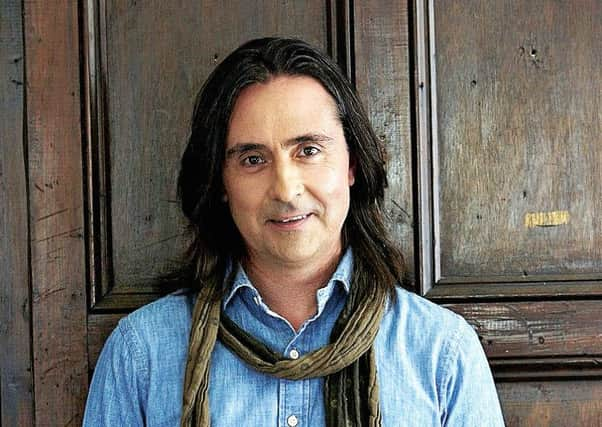Martyn McLaughlin: Neil Oliver appointment is populist, not political


The hysteria and abuse surrounding the appointment of Neil Oliver as the new president of the National Trust for Scotland (NTS) may stem from a slender minority, but it is sufficiently toxic as to give cause for concern.
At the weekend, the body entrusted with safeguarding some of Scotland’s most cherished places confirmed Mr Oliver would serve as its new figurehead. It is a prestigious role, yet one that has historically flown beneath the radar – if you can name but one of Mr Oliver’s predecessors, consider yourself a learned observer of Scotland’s heritage. But the elevation of the high-profile broadcaster and archeologist looks set to change all that in ways the Trust had not anticipated.
Advertisement
Hide AdAdvertisement
Hide AdMr Oliver, by his own admission, is an avowed critic of the independence movement and the SNP. He voted No in the 2014 referendum and has balked at the prospect of a second plebiscite, describing the continued uncertainty as a “cancerous presence”. At times, his protestations have veered into poor taste, offering up a thinly-disguised jab at the weight of Alex Salmond, who he called a “big, round wrecking ball of a man, shaped only to do damage”.
It was a indelicate turn of phrase, although were you to judge it against the coarse standards set by some supporters on both sides of the constitutional divide, his contributions have been positively restrained.
If there was a word to summarise Mr Oliver’s position and temperament, staunch would perhaps do the trick.
Yet if you were to believe the fevered narrative being peddled on social media in recent days, the installation of the 50-year-old to the helm of the NTS is a disastrous act of self-harm on the part of Scotland’s leading conservation body, akin to asking the wolf at your breakfast table if he’d care for a top up of his coffee.
Mr Oliver is not the only high-profile No voter to have been the subject of online abuse in recent years, but the opprobrium directed towards him has been particularly feverish. He has been dismissed variously as a “hateful preacher,” a “divisive bigot,” a “Scotland hater,” a “traitor Unionist,” and, perhaps most predictably of all, an “Uncle Tom” for 21st century Scotland.
The subtext of these slurs hints at the source of this moon-howling fury. The latter three charges amount to an accusation of betrayal, and with it, an assumption that simply because Mr Oliver’s day job involves popularising Scottish history, he should somehow submit to the hoary credo that national identity is synonymous with nationalism.
Tolstoy once remarked that historians are like deaf people who go on answering questions that no-one has asked them. Equally, the hectoring minority of the online independence movement is quick to take umbrage even when no offence has been committed.
In this mindset, the NTS and the treasures it guards are sacred. That, you might think, is eminently reasonable. The charity counts among its portfolio of 129 properties a host of sites that have emotional resonance for many Scots. But they are not the preserve of those of a certain political persuasion, even if a few battlefields and castles happen to be symbolic of the outmoded and extraneous blend of romantic nationalism which propagates like ground elder in the digital nooks and crannies.
Advertisement
Hide AdAdvertisement
Hide AdAmong those who subscribe to this doctrine, the idea that Mr Oliver might preside over these shrines – maybe even wielding his executive power to replace the square sausage at Bannockburn’s cafe with bubble and squeak – is unconscionable, prompting a welter of petitions.
The NTS has also been getting it in the neck, receiving a flurry of angry missives from the aggrieved promising that memberships are to be cancelled and properties boycotted. Some have even called for the Trust to be stripped of its public funding, or inexplicably, for its members to transfer their allegiances to Historic Environment Scotland, the equivalent of taking up badminton because the big boys won’t let you play fitba.
Whether it is the result of wilful misinterpretation or stultifying ignorance, such calls fail to appreciate the purpose of Mr Oliver’s new role and the Trust’s motivations. Any notion that the grandiosity of his title is evidence of its influence is dispelled in the Trust’s constitution. “The role of president will be, inter alia, ambassadorial and advisory,” it states. In other words, the important decisions are – and will continue to be – made by its 12-strong board of trustees.
Until now, the NTS presidency has been occupied by a succession of dukes, earls, and marquesses, among them Tory MPs, Freemasons, brigadier generals, and Belgravia-born landowners. It is hardly fertile territory for nationalist sympathies to take root, and yet each incumbent ensured the continuance of a politically neutral charity.
Their successor will hope to emulate them, and his appointment will add a little spark to the post. For much the same reasons, the NTS appointed Alan Cumming, the actor and committed independence campaigner, as its first celebrity ambassador a few years ago.
Mr Oliver may not be a likeable figure or the foremost authority on Scotland’s past, and despite describing himself as such, he is not a historian (tellingly, the NTS introduced him as an “archaeologist, TV presenter and author”). His strength, however, is in exciting and inspiring the general public, qualifications well-suited to a ceremonial position. Populism should not be confused with politics.